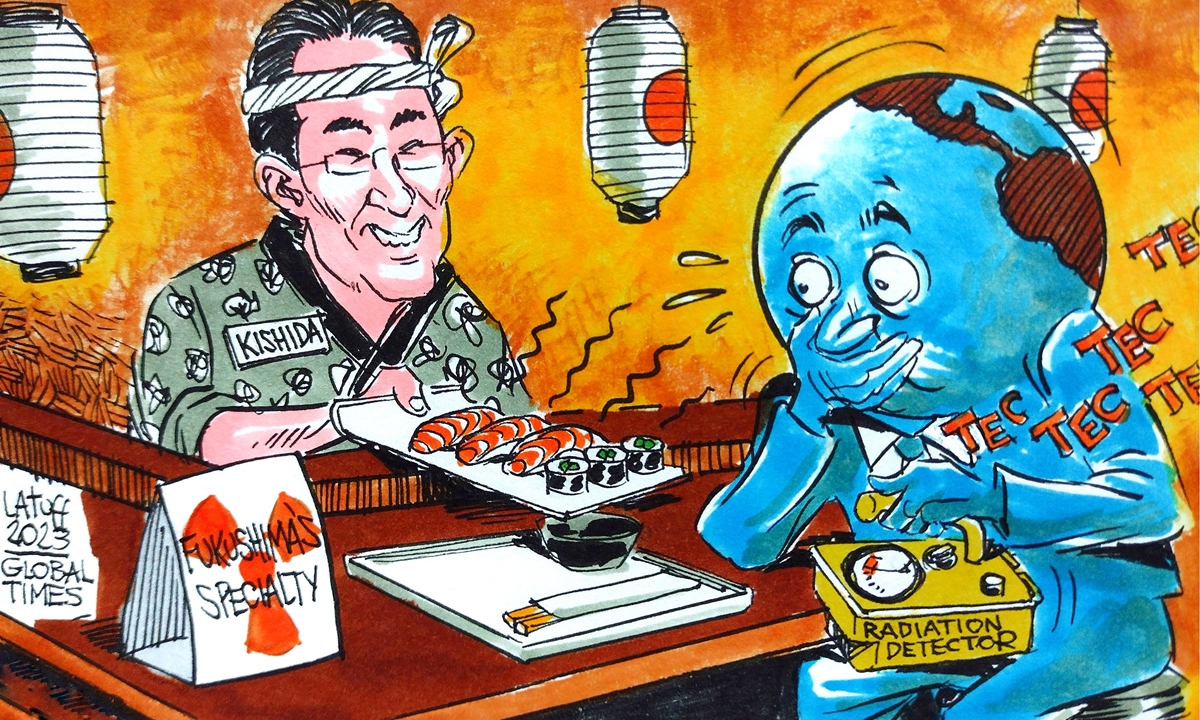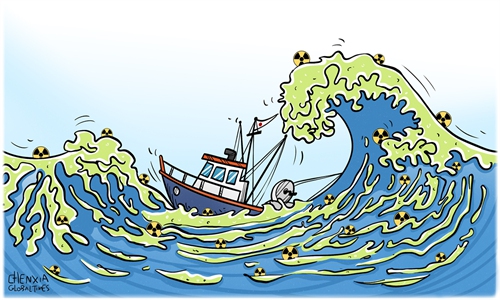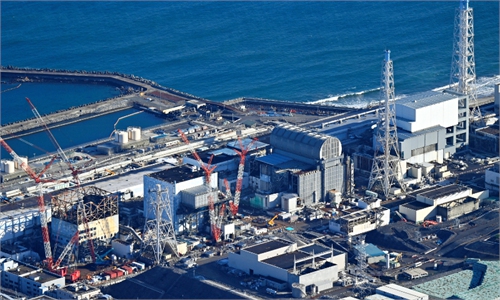Japan’s WTO appeal over seafood ban another attempt to ‘legalize’ radioactive wastewater dumping

Japan serves special dish. Illustration: Carlos Latuff/Brazil
Japan's appeal at the World Trade Organization (WTO) in response to China's ban on Japanese seafood following Tokyo's arbitrary dumping of nuclear-contaminated wastewater into the sea is another attempt to "legalize" its radioactive wastewater dumping, but the move only risks further complicating the already tense China-Japan relationship, experts said.
According to a press release from the Japanese Ministry of Foreign Affairs on Monday, Japan told the WTO that China's ban on Japanese seafood following the radioactive wastewater dumping is "totally unacceptable," and it strongly urged China to immediately repeal its measures.
Previously, China notified the WTO regarding its suspension of Japanese aquatic imports, which began in the previous month.
In response to Japan's WTO appeal, Chinese Ministry of Foreign Affairs spokesperson Mao Ning said on Tuesday that the measures China has adopted are fully legitimate, reasonable and necessary.
"We've made clear China's position on Japan's ocean discharge of nuclear-contaminated water several times. The discharge has had no precedent since humanity began using nuclear energy for peaceful purposes, nor is there widely recognized standards for this method of disposal.
"The international community is watching closely what risks Japan's moves have brought to the marine environment and public safety, and have taken preventive measures accordingly," the spokesperson further noted.
On August 24, Chinese customs imposed a sweeping ban on all imports of Japanese aquatic products in a bid to protect food safety.
The move aims to "comprehensively prevent the risk of radioactive contamination caused by the dumping of nuclear-contaminated water from Fukushima to food safety, protect the health of Chinese consumers, and ensure the safety of imported food," China's General Administration of Customs (GAC) said in a brief notice.
In a separate statement, an official of the GAC blasted Japan's decision to "forcefully" start dumping nuclear-contaminated wastewater into the sea in disregard of international concerns and opposition.
The ban is dealing a serious blow to Japan's seafood export sector, which counts China as its top market. According to the data of the Japanese Fisheries Agency, China was Japan's largest source of seafood imports in 2022.
"Japan's WTO appeal is unlikely to have any foreseeable practical impact. Instead, it appears to be an attempt to tarnish China's reputation as a country that does not conform to international rules," Xiang Haoyu, a research fellow of the China Institute of International Studies, told the Global Times on Tuesday, noting that Japan's ultimate goal is to create a legitimate justification for its dumping.
Xiang said that China's ban is implemented to safeguard the health of Chinese consumers and prevent risks from nuclear wastewater to food safety, and the move is totally legitimate and reasonable.
"The core of Japan's approach is still to seek international support and recognition for its radioactive wastewater dumping. However, Japan's actions not only fail to find a legitimate basis for its dumping but also pose a risk of further complicating the current already tense China-Japan relationship," Xiang said.


